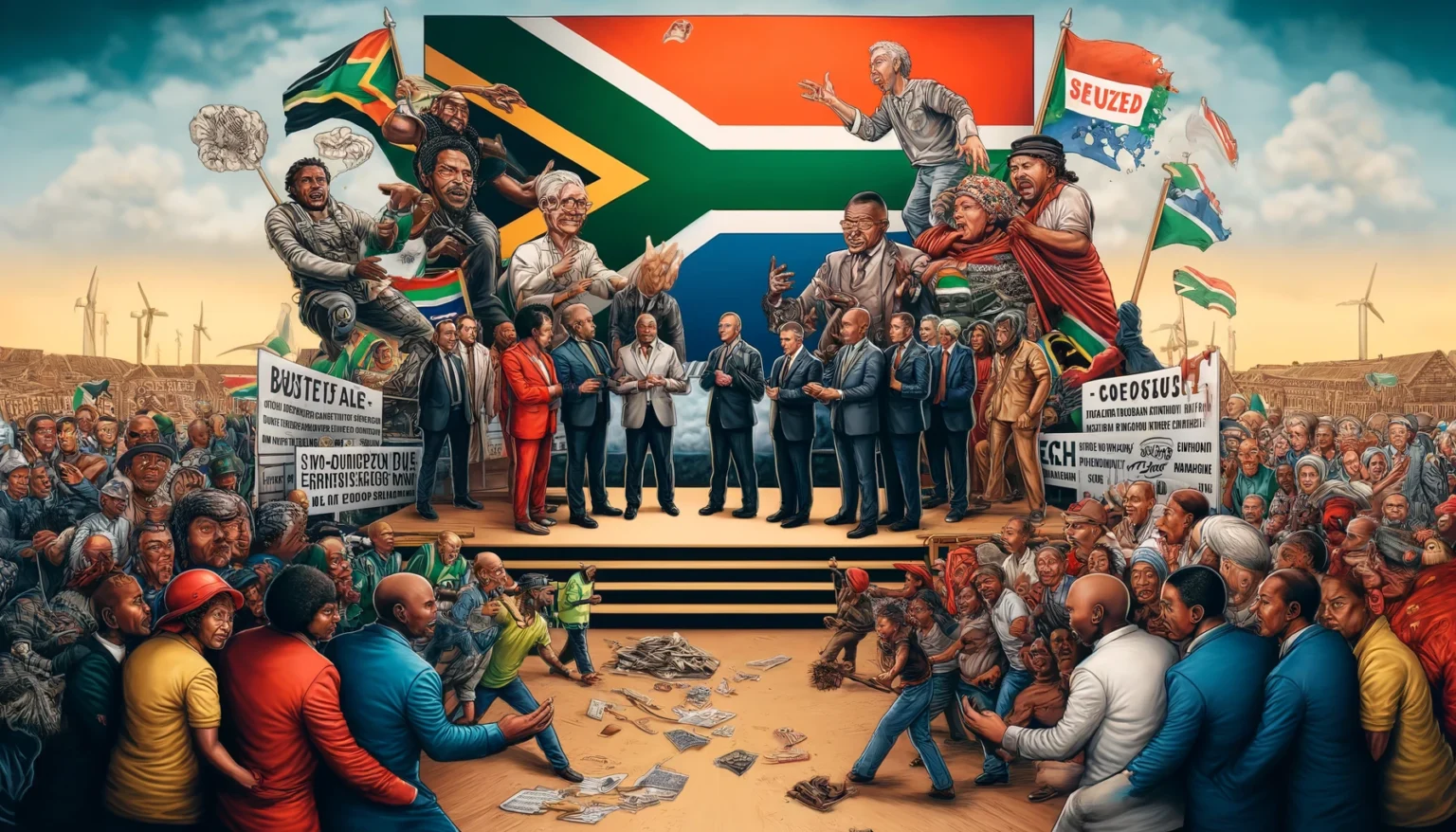Ladies and gentlemen, welcome to the latest episode of “Political Circus.” Today, we’re diving into the mess that is South Africa’s post-election landscape. The African National Congress (ANC), once the unchallenged rulers, are now scrambling to stitch together a unity government. And the irony? They need to bring together factions with goals as wildly contradictory as seizing white-owned farms and mines, ditching Black empowerment policies, and tearing up the constitution.
How in the world is the ANC going to reconcile these polar opposites? Their ability to harmonize these conflicting visions will determine not only the government’s stability but also its policy direction over the next five years. Remember Nelson Mandela’s dream of a “rainbow nation”? Well, the recent election on May 29th exposed just how fractured South Africa remains, along ethnic and racial lines.
Piers Pigou, head of the Southern Africa Programme at the Institute for Security Studies, aptly describes the situation as “polarized politics on steroids.” He predicts a messy, fluid period ahead.
The ANC, which held power unopposed for 30 years, lost its majority with a mere 40% of the vote. They’re now in a mad rush to form a unity government with their rivals. President Cyril Ramaphosa has expressed a preference for a government involving a broad range of parties, rather than a coalition with just one or two.
But here’s the kicker: instead of seeking common ground, parties have only hardened their positions and traded insults. Last week, ANC chair Gwede Mantashe blamed the success of Jacob Zuma’s uMkhonto we Sizwe (MK) party on “Zulu tribalism,” sparking outrage from the Zulus and the MK. Meanwhile, Zuma is crying fraud in an election deemed free and fair by observers.
Nelson Mandela set up a national unity government in 1994 to unite a nation divided by apartheid. Fast forward to today, and we see a South Africa just as divided. Parties that performed well in the election campaigned on narrow nationalistic identity politics. This election has been a setback for the vision of a united, non-racial society.
The MK party, for instance, swept up nearly half the vote in Zuma’s Zulu heartland of KwaZulu-Natal. The Democratic Alliance (DA), overwhelmingly popular with whites, remains the largest opposition party with 22% of the vote. The far-left Economic Freedom Fighters (EFF) have their biggest support among urban Blacks, while the ANC retains loyalty among rural Black voters. The Patriotic Alliance, with 2% of the vote, campaigned to defend mixed-race South Africans.
Investors favor an alliance between the ANC and the pro-business DA as the most market-friendly. However, ANC heavyweights, like executive committee member Mathews Phosa, reject this idea, viewing the DA as the party of white privilege. The ANC aims to dilute the DA’s influence by including smaller parties in any coalition.
Nicole Beardsworth, a research fellow at the University of Witwatersrand, points out that the ANC, always a broad church, now needs to balance demands from its left wing, including the Communist Party and the Congress of South African Trade Unions. To do this, they might need to bring in smaller, more radical parties.
Creating a functional government that can revive South Africa’s struggling economy is a monumental challenge. Independent analyst Daniel Silke warns that forming cohesive policies will be extremely difficult. The ANC and EFF want to expropriate white-owned land for poor Black farmers, a policy opposed by the DA. The DA wants to scrap Black empowerment policies that have mostly benefited a politically connected Black elite, another red line for the ANC.
Adding to the complexity, the EFF and Zuma’s MK party both want to overhaul the constitution—one to put land, water, and mines into state hands, the other to give more power to traditional chiefs. The DA has ruled out working with either the MK or EFF, and Zuma’s party insists that Ramaphosa must step down—a condition he firmly rejects.
So, buckle up, folks. South Africa’s political future is a high-stakes game of chess, with the ANC struggling to keep its grip on power amidst a sea of conflicting demands and deep-seated divisions. It’s a mess, and the world is watching.
